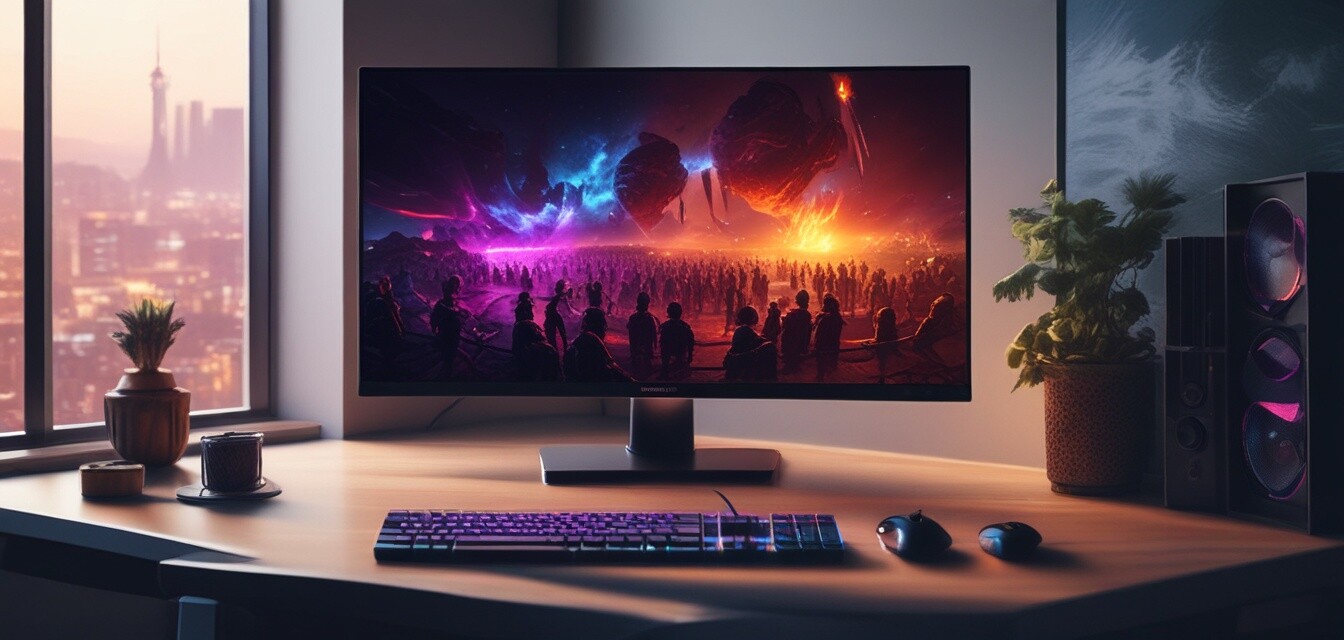
How to Optimize Your OLED Monitor for Console Gaming
Key Takeaways
- Setting up an OLED monitor can enhance gaming visuals significantly.
- Adjusting settings such as refresh rate and HDR will improve gaming experience.
- Pay attention to input lag to ensure a responsive gaming feel.
- Check for compatibility with your gaming console for the best performance.
- Calibrate brightness and color settings for optimal viewing.
When it comes to console gaming, a high-quality OLED monitor can offer an unparalleled visual experience. These displays provide vibrant colors and deep blacks, making games look stunningly realistic. However, to get the most out of your OLED monitor, you need to optimize its settings for gaming. In this guide, we will explore the essential tips and tricks that will help you enhance your gaming setup.
Understanding OLED Technology
Before diving into optimization, it’s essential to understand what makes OLED monitors unique:
- **Self-Emissive Pixels**: Unlike traditional LCDs, each pixel in an OLED display emits its own light, allowing for true blacks and a more extensive color range.
- ** Faster response times**: This leads to smooth motion and reduces blur, crucial for fast-paced gameplay.
- ** Wider viewing angles**: You can enjoy consistent colors from off-angles, making them suitable for multi-player gaming sessions.
Setting Up Your OLED Monitor for Console Gaming
Follow these steps to set up your monitor effectively:
1. Choose the Right Location
The placement of your monitor can affect your gaming experience. Make sure:
- It's at eye level to reduce neck strain.
- There’s minimal glare from windows or lights.
2. Adjust Input Settings
Each gaming console has specific settings ideal for gaming:
- Enable Game Mode on your monitor to reduce input lag.
- Ensure your monitor is running at its optimum refresh rate.
3. Calibration of Picture Settings
Fine-tune your monitor’s picture settings:
| Setting | Recommended Adjustment |
|---|---|
| Brightness | 50%-70% (depending on the room's light) |
| Contrast | 75%-85% |
| Color Temperature | Warm or Custom |
| Sharpness | Zero or minimum |
4. Utilizing HDR Effects
If your console supports HDR (High Dynamic Range), make sure to:
- Turn on HDR settings in both the console and monitor.
- Calibrate HDR settings for vibrant color and contrast.
Monitoring Performance
Keep an eye on input lag and responsiveness:
- Use dedicated gaming monitors for low input latency.
- Use tools or apps available to check lag performance.
Compatibility Considerations
Before finalizing your setup, ensure compatibility:
- Check if your OLED monitor supports the resolutions and frame rates of your gaming console.
- Invest in high-quality HDMI cables that support 4K or higher resolutions.
Tips for Maintaining Your OLED Monitor
Beginners Section
- Regularly update your monitor’s firmware for the latest features and improvements.
- Use an application or built-in settings to periodically check the screen for burn-in issues.
- Adjust the screen’s brightness based on usage to prolong its lifespan.
Conclusion
By following these tips, you'll be able to optimize your OLED monitor for the best console gaming experience. Always remember to keep the latest updates on both your monitor and gaming console for the maximum features and performance. Happy gaming!
Pros
- Exceptional color accuracy and contrast.
- Faster response times improve game performance.
- Higher viewing angles enhance multiplayer experiences.
Cons
- Risk of burn-in with static images over time.
- Tends to be more expensive than traditional monitors.
For more in-depth information on what to look for in a monitor, check out our Buying Guides. Additionally, you can explore the various types of OLED monitors available today in our 4K OLED Gaming Monitors category. Whether you’re looking for budget-friendly options or specialized monitors like Curved OLED Gaming Monitors or G-Sync & FreeSync OLED Monitors, we have comprehensive resources for you!